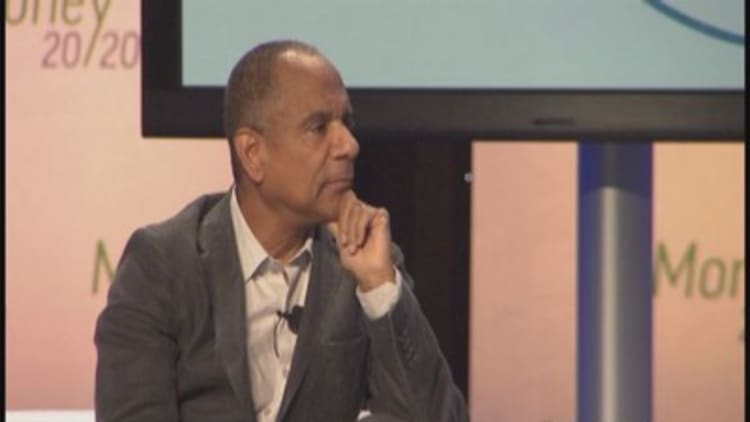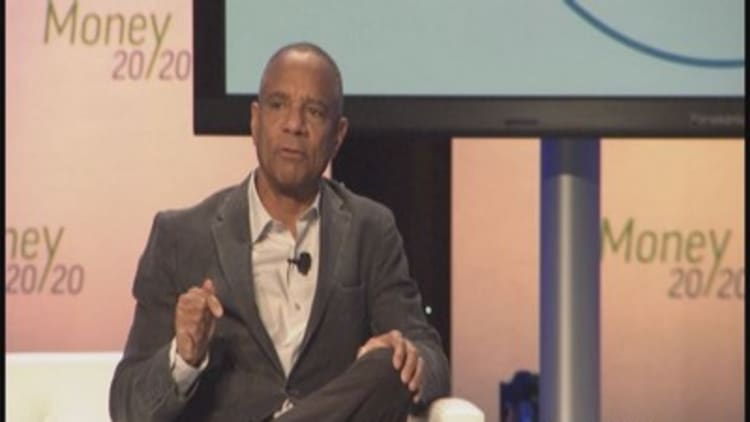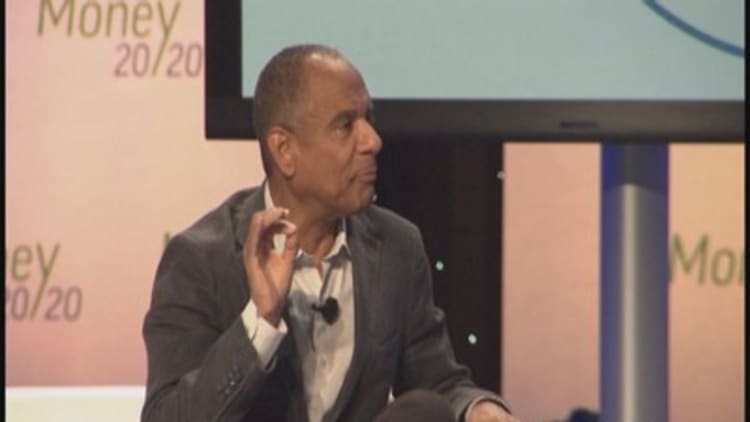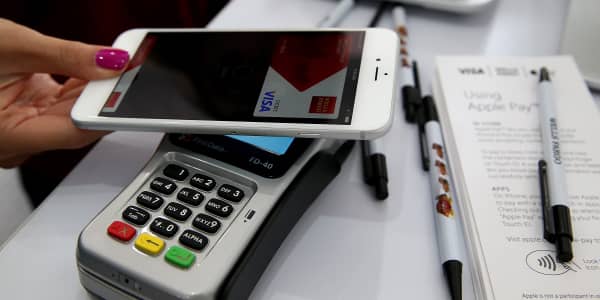


The payments space is suddenly hot, but American Express CEO Ken Chenault welcomes the heat.
"I love competition," Chenault said Tuesday during a fireside chat at the Money 2020 conference this week in Las Vegas. The 62-year-old Chenault was there to accept the 2014 Core Visionary Award from Core Innovation Capital. In the wide ranging half hour talk that followed, he provided some insights into how he tries to keep a 164-year-old company relevant in a rapidly changing space.
"You have to have this spirit of reinvention, and that is what we have in the DNA of the company," he said. "If you don't innovate, you die. You have to constantly innovate, you have to constantly challenge the status quo."
In payments, the status quo is cash. It still accounts for more than 80 percent of all global transactions. But a growing group of entrepreneurs, along with more traditional financial companies including American Express, its rivals Visa and MasterCard and banks, is looking to change that. At stake are the millions, if not billions of dollars in fees that can be had by moving payments from cash and checks to credit cards, debit cards or payments that can be made either with a physical card or via your phone and computer.
"One of the points I make consistently to our people is that we want to become the company that will put us out of business," Chenault said.
Many people in the standing-room-only audience at Money 2020 would like to put American Express out of business. They believe the current payment systems, including the closed loop network run by AmEx, are antiquated and too expensive for consumers and the merchants who pay AmEx a fee each time a customer uses their card.
Rather than taking a defensive posture toward the new challengers and changes facing his business, Chenault welcomes them. He said he doesn't care if some day the company's iconic card is no longer held in a person's leather wallet, as long as American Express is part of their digital wallet.
Read MoreTop credit cards for college students
"The key thing at the end of the day is the service and the brand, the value that we provide," he said. "In fact what we've seen since we've embarked heavily on our digital transformation, our brand has continued to increase in value and that is consistent with all brand surveys being done."
Under Chenault, the American Express brand is undergoing a makeover. While the core American Express client is still the business traveler or from the upper-middle class, Chenault has focused on creating more inclusive products. To that end, the company has launched Bluebird, an online checking account and debit card for Wal-Mart customers, and a prepaid card called Serve.
He is also trying to expand the number of merchants who accept American Express with a program called OptBlue. It allows small merchants to decide the fee they pay to AmEx, provided it is above a floor set by the company.
"We are pleased with the early results, we think it's going to have a very important impact in driving our acceptance at small businesses," he said. "The reality is our closed loop, our marketing insights allows us to provide different types of promotions and offers that helps small merchants drive their business. So it's not just getting the acceptance, it's getting the engagement you need with the customer and becoming more relevant."
Read MoreSurvey says: Millennials prefer plastic
Wearing a casual gray blazer and a white shirt, Chenault looked as if he would easily fit in at the company's newest partner, Apple. American Express, along with Visa and MasterCard, are among the original partners in its recently launched Apple Pay payment system.
He brushed aside concerns Apple might someday do an end run around the card processors once it builds scale, and buy a smaller network like Discover to process Apple Pay payments.
"The reality is you can take a defensive mentality and say, 'I'm going to hunker in the bunker because I am not sure what will happen,'" he said.
"Does Apple want to be involved in credit and all that goes with that?" he asked. "I don't think so."
He also played down concerns about the pending launch of CurrentC, a mobile app that will connect to a rival network created by a group of retailers including Wal-Mart and Target. The group, known as the Merchant Customer Exchange, was formed to find ways retailers can reduce or eliminate the fees they pay to AmEx, Visa and MasterCard.
"We still don't know what CurrentC will consist of, " he said, adding what is critical for merchants is that they want to grow sales and customers. So the question is will CurrentC provide shoppers with the incentives needed to increase their spending at those stores?
Read More43 percent of companies had a data breach in the past year
CEO since 2001, Chenault does not give any indication he is ready to step aside, though he did have an answer when asked how he would like someone to describe AmEx once he retires.
"We're a company about reinvention," he said. "We are a welcoming, inclusive brand that is going to become meaningful in the lives of many people."



